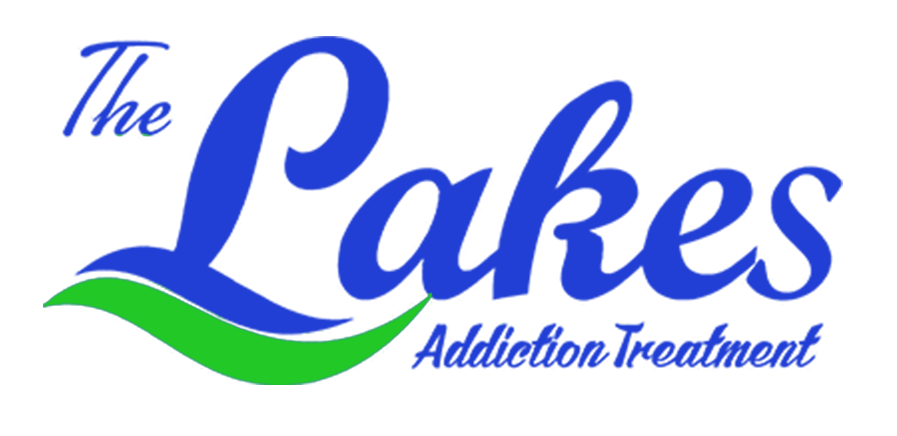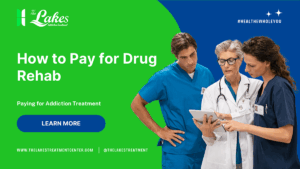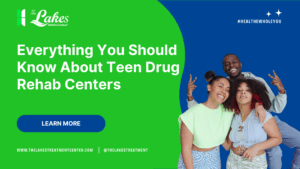Key Takeaways
- The prevalence of co-occurring bipolar disorder and substance use is significantly higher than in the general population.
- Substance use can temporarily relieve or worsen bipolar symptoms and may even contribute to developing a substance-induced bipolar disorder.
- Bipolar and addiction treatment often involves dual diagnosis for substance use treatment, which can further mitigate the course of bipolar disorder and other mental illnesses.
- Dual diagnosis treatment provides integrated, evidence-based care addressing both mood instability and substance use simultaneously for better outcomes.
- Individuals should seek dual diagnosis treatment when diagnosed with bipolar disorder, experiencing worsening symptoms, or noticing significant life disruptions from combined conditions.
For many people, addiction and mental health disorders, like bipolar disorder, can go hand in hand. The comorbidity of mental illness and addiction is common, and addressing both is crucial for effective treatment. When this happens, you will usually need to seek out specialized treatment for co-occurring disorders, as this will treat both the behavioral health and mental health issues.
This article discusses everything that you need to know about treating co-occurring disorders through dual diagnosis treatment. Keep reading to find out what it means when bipolar disorder and addiction overlap and what your treatment options are.
Bipolar and Addiction: Understanding Co-Occurring Disorders
If you have both bipolar disorder and an addiction, this would most likely mean that you have co-occurring disorders. A co-occurring disorder happens when an individual has both a mental health and a behavioral health disorder at the same time. Individuals with co-occurring bipolar disorder face unique diagnostic and treatment challenges due to the complex interplay between mood instability and substance use.
Believe it or not, co-occurring disorders are quite common and often fuel one another. In most cases, an individual will suffer from either a mental health disorder first that leads to them developing a substance abuse disorder, or vice versa.
The Types of Bipolar Disorders
Bipolar I is characterized by at least one manic episode. Bipolar II involves hypomanic and depressive episodes. Bipolar II disorder, in particular, is often underdiagnosed due to its unique symptom profile.
Because even if your symptoms seem similar to bipolar disorder, there may be another mental disorder involved. For example:
- Cyclothymic disorder, another related diagnosis involving chronic mood fluctuations, may be at work
- Anxiety disorders frequently co-occur with bipolar disorder, further complicating the clinical picture.
- Related disorders, including other mental disorders, should also be considered in assessment and treatment planning.
How Bipolar Disorders and Addiction Treatment Fuel One Another
If you are suffering from bipolar disorder, you may find yourself abusing addictive substances, such as alcohol or drugs, as a way of self-medicating.
During the depressive phase, a major depressive episode may occur, characterized by persistent sadness, loss of interest, and functional impairment. While substance use may provide temporary relief, it often intensifies depressive symptoms and can make recovery more difficult. In addition to depressive symptoms, substance use may also lead to hypomanic symptoms, further complicating the clinical picture. As symptoms escalate, individuals may experience severe mood swings, making emotional stability even harder to achieve.
On the other hand, substance misuse can also cause bipolar disorder due to the negative effects it has on your cognitive health. In clinical terms, this is often diagnosed as a substance use disorder, which requires integrated treatment. The presence of co-morbid substance use can further complicate the management of bipolar disorder and worsen outcomes.
What is Dual Diagnosis Treatment?
If you believe you are suffering from bipolar disorder and addiction as co-occurring disorders, you need to seek treatment right away. The best treatment option available is to find dual diagnosis treatment near you, which will help to treat both disorders at the same time. Integrated treatment provides a coordinated approach, ensuring both conditions are addressed simultaneously for better outcomes.
Dual diagnosis treatment is specifically created to address the triggers, concerns, and side effects of co-occurring disorders. This is important because co-occurring disorders can be harder to treat since both disorders often feed off of one another, creating a vicious cycle. Effective treatment requires evidence-based approaches that address both disorders together for the best chance of recovery.
It is usually necessary to seek dual diagnosis treatment rather than general addiction or mental health treatment if you have a co-occurring disorder. Although other treatment programs may be helpful up to a certain point, they will not be able to address the full picture.
When Should You Join a Dual Diagnosis Treatment Program for Bipolar and Addiction Disorders?
Anyone who has bipolar disorder and a substance abuse disorder should join a dual diagnosis treatment program. These are disorders that are not just going to go away on their own and are very likely to get worse if left untreated. Untreated co-occurring disorders can significantly increase suicide risk, making early intervention critical. And in most cases, seeking addiction or mental health treatment individually isn’t going to be as effective as combined treatment.
But if you are still unsure about whether or not dual diagnosis treatment is right for you, here are some examples of when you should consider checking into a program:
Mental Health Diagnosis
It can be difficult to know whether or not you have co-occurring disorders since substance abuse often has mental health symptoms. However, if you have received a mental health diagnosis, such as a diagnosis of bipolar disorder, it is important to seek help right away.
Family history of mental illness or substance use can increase your risk and should be discussed with your provider.
Worsening Symptoms
If your bipolar disorder and substance abuse symptoms are getting worse, now is the time to act. You may have postponed getting treatment up until now, but if left untreated, these disorders are very likely to escalate.
Remember: ongoing substance use or trauma is a significant risk factor for developing co-occurring disorders. It is important to consider your lifetime history of substance use, as past issues can influence current risk. Be alert for SUD symptoms, such as increased cravings, withdrawal, or loss of control, which may indicate worsening conditions.
Lifestyle Impact
Even if you feel you are managing your disorders, you may start to notice that they are having a negative impact on your life. If you are struggling to hold down a job, are neglecting your responsibilities, or are struggling to maintain your relationships, you need to find a treatment program.
Prevalence data show that these lifestyle impacts are common among people with co-occurring disorders. Clinical characteristics such as mood instability, impaired functioning, and social withdrawal are often observed in individuals with both bipolar disorder and substance use disorders.
Dual Diagnosis Treatment Near You: What to Look For
Even after you have acknowledged that it is time to get help for your bipolar disorder and addiction, you may not know how to choose the right program. Most mental health and addiction facilities now provide dual diagnosis treatment, providing more options than ever before.
Although this is a good thing, it can make it a bit challenging to find a program that fits your needs.
Here are some specific factors to consider before moving forward with a treatment program.
Comprehensive Care
When it comes to treating co-occurring disorders, it is important to look for a dual diagnosis treatment program that offers comprehensive care. You want to join a program that treats the whole person and assesses your individual situation and needs. From there, you should be provided with an individualized treatment plan catered to your mental health disorder, substance abuse disorder, and recovery goals.
Evidence-Based Therapies
Different types of therapies will be an integral part of your recovery journey when you join a dual diagnosis treatment program. The program you choose should provide a variety of evidence-based therapies that focus on your mental and physical health.
Depending on your goals, it can also be useful to find a program that provides different types of therapies, such as:
- Art therapy
- Experiential therapy
- Mindfulness therapy
- Life skills therapy
- Group therapy
- Family therapy
Aftercare Planning
An essential part of maintaining long-term recovery for both mental health and addiction disorders is aftercare planning. A high-quality dual diagnosis treatment program should provide aftercare planning and resources to better equip you when the program has ended.
Aftercare programs provide ongoing support, guidance, and accountability, as well as continued access to recovery resources.
Relapse Treatment
If this isn’t your first time seeking help for co-occurring disorders, you may also want to look for relapse treatment. A multiple relapse treatment program can work in combination with a dual diagnosis program to improve your chances of long-term recovery.
Relapse treatment usually includes additional support systems and recovery resources to better equip you to maintain recovery during and after your program is completed.
Find Treatment For Co-Occurring Disorders at The Lakes Treatment Center
Do you believe that you are suffering from co-occurring disorders? If so, there are many options available that can help you get the treatment you need.
At The Lakes Treatment Center, our dual diagnosis treatment program can treat all the most common co-occurring disorders in either a short-term or long-term program. We understand the unique challenges that come with treating co-occurring disorders, which is why we provide a variety of additional resources, such as relapse treatment.
Are you ready to join a dual diagnosis treatment program? Contact us today at The Lakes Treatment Center to get started.
Frequently Asked Questions
Q: Does substance abuse lead to developing bipolar disorder?
Substance use is also recognized as a risk factor for developing bipolar disorder, especially in vulnerable individuals. Substance use can impact a wide range of bipolar symptoms, including mood, energy, and behavior. Drug abuse, including both legal and illegal substances, is commonly associated with the onset and progression of co-occurring bipolar disorder.
Q: How do they diagnose co-occurring bipolar disorder?
A co-occurring bipolar disorder diagnosis may include alcohol use disorder. Alcohol dependence is another specific diagnosis that may be present. The severity of your addiction may be classified as substance dependence.
Q: What types of co-occurring bipolar disorders are there?
There are two broad categories: a co-occurring bipolar I disorder, and a co-occurring bipolar II disorder. Dual diagnosis treatment typically provides a full assessment, individualized treatment plans, evidence-based therapies, medication support when needed, and holistic options such as mindfulness or art therapy.
Q: Do I need dual diagnosis treatment if I have bipolar disorder alongside substance abuse disorder?
Yes, co-occurring bipolar disorder typically requires dual diagnosis. For example, substance abuse treatment programs that are not specialized for dual diagnosis may not provide the comprehensive care required. Integrated group therapy is one example of a therapeutic approach used in dual diagnosis programs to address both conditions together. In addition to standard medications for bipolar disorder, other medications may be considered to optimize safety and effectiveness, especially when substance use is involved.
Q: Why do I need integrated treatment for a co-occurring bipolar disorder?
The presence of co-occurring substance abuse complicates treatment and requires integrated care due to the many risk factors of relapse. Look for programs offering comprehensive care, evidence-based therapy, and individualized treatment plans. Verify that the center treats both bipolar disorder and substance use, provides aftercare support, and offers relapse prevention resources. Ask about therapy options, medication management, and levels of care. Choosing a program with experience in co-occurring disorders increases the likelihood of long-term recovery.
Q: How common are co-occurring SUDs?
Co-occurring SUDs are common, with many individuals experiencing multiple substance use disorders alongside bipolar disorder. Bipolar patients are particularly affected by these comorbidities, and research shows that those with bipolar I disorder face unique challenges.




